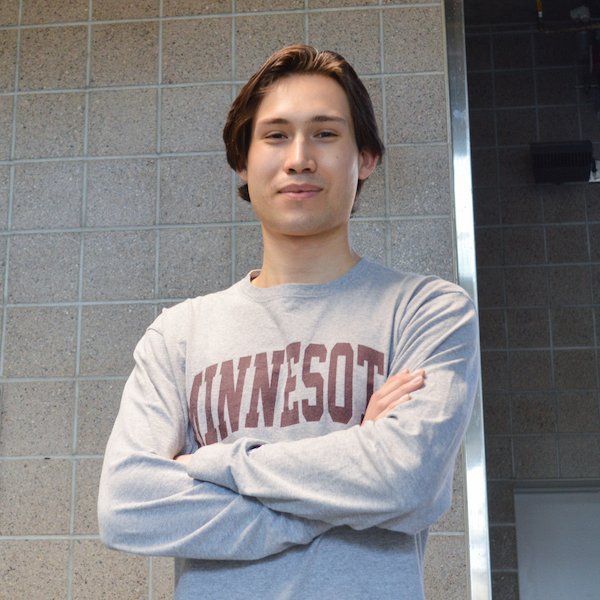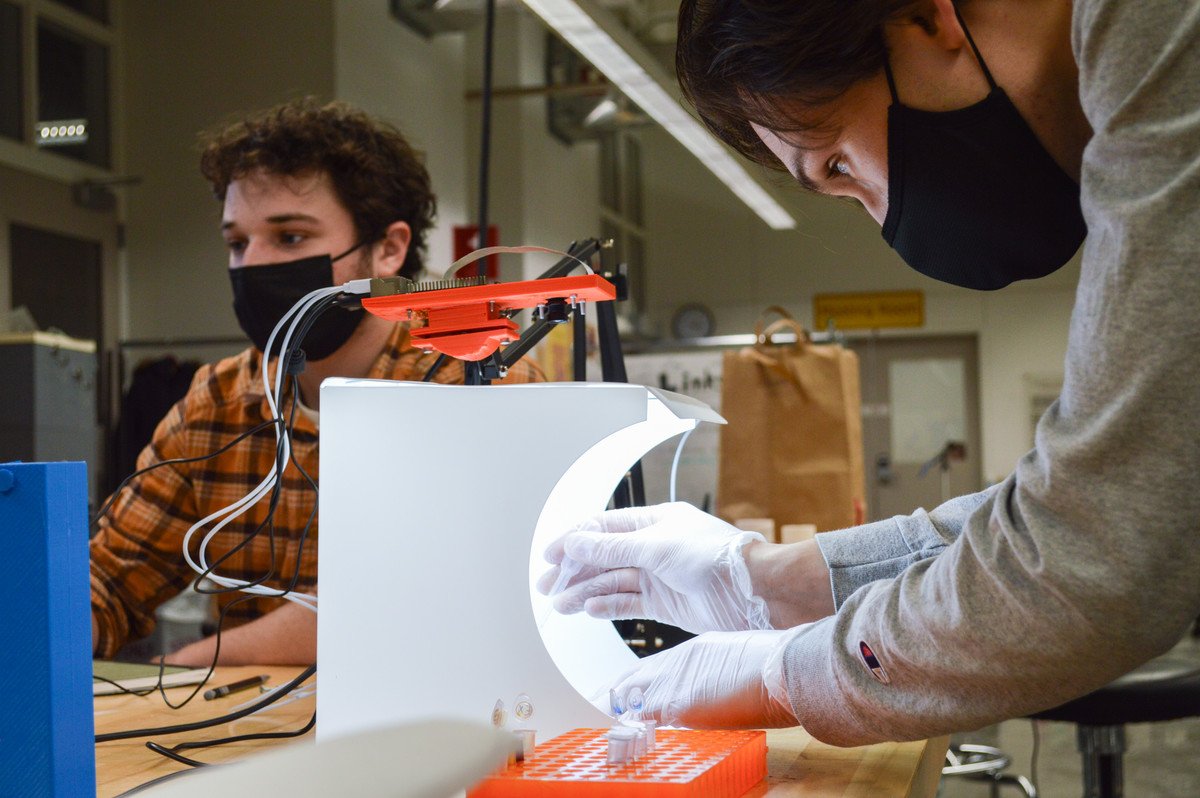BME senior takes on climate change and, eventually, bioproducts in space

Photo credit: Olivia Hultgren
April 11, 2022 — Arriving at the University of Minnesota Twin Cities his freshman year, Benjamin Alva had several very clear goals. The biggest, and perhaps most pertinent, was to slow the destruction of the world’s coral reefs.
Alva, now a senior studying biomedical engineering in the College of Science and Engineering, has had three internships with NASA, started his own intercollegiate student group, and is working on building a bioreactor that can eventually help save coral reefs. One could say he’s getting pretty close to achieving that goal.
He decided to study biomedical engineering because of its applications to biological systems. And in late 2019, with a friend from Washington and Lee University in Virginia, he co-founded Syntrophy, a student group that brings together students from different universities around the U.S. to collaborate on engineering projects.
A bioreactor to save coral reefs
One of the group’s projects is a photobioreactor that can simulate coral tissue microenvironments in order to study and synthetically grow zooxanthellae, a microorganism that lives in coral reefs and is crucial to their survival.
Alva and several fellow CSE students received funding for the project from the Taylor Student Project Fund and have been building the bioreactor in both the University of Minnesota’s Anderson Student Innovation Labs and the Earl E. Bakken Medical Devices Center.

The students also formed a startup called Maverick Bioworks to eventually commercialize the bioreactor and sell it to research labs so scientists around the world can further study zooxanthellae.
Ultimately, Alva hopes they can use the bioreactor to genetically engineer a strain of the microorganism that can withstand hotter temperatures, which would make coral reefs more resistant to climate change.
Blast off
Another area of interest for Alva is engineering technology for space exploration. Throughout his undergraduate career, he’s had three internships with NASA. One focused on studying hot springs at Yellowstone to provide background for the Mars Perseverance rover mission, and the other two developing technology that could use carbon dioxide to produce biomaterials on different planets.
After graduation, Alva plans to continue working on Maverick Bioworks and conduct a summer research fellowship at NASA Ames Research Center, where he’ll lead an atmospheric payload project to study biology in conditions comparable to the surface of Mars. Then, he'll attend the California Institute of Technology (Caltech) to pursue a Ph.D. in bioengineering in Fall 2022—he's one of only a few U of M Twin Cities graduating seniors to receive a prestigious National Science Foundation Graduate Research Fellowship.
In the future, he hopes to land somewhere between faculty member and entrepreneur, so he can both conduct research and engineer real products to benefit humanity.
“The University of Minnesota helped me create a very strong foundation in biology and engineering,” Alva said. “It not only gave me the tools and the knowledge to do great things, but it also gave me a sense of how to approach complex problems. My ultimate goal is to pioneer the commercialization of bioprocessing in space—essentially to launch a company that serves the space economy of the 21st century, which is only going to expand as time goes on.”